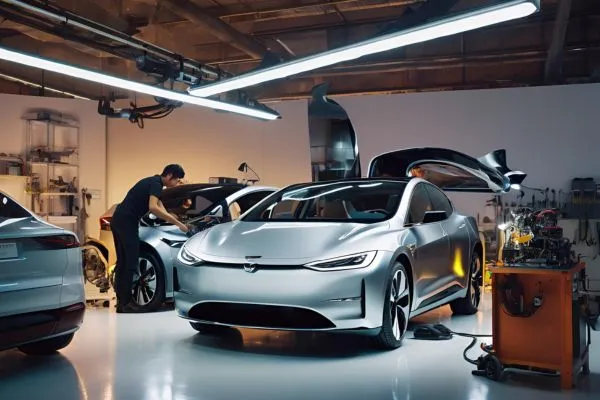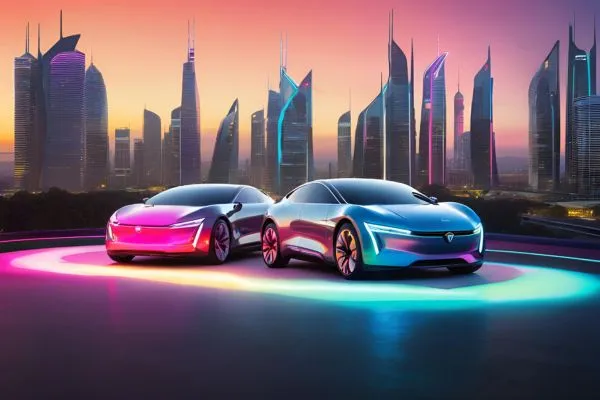AutoPartners: Transforming the World of Cars

The car industry has changed a lot over the years. From simple vehicles to the high-tech cars we see today, the journey has been amazing. A big reason for this progress is partnerships between companies—what we call AutoPartners.
AutoPartners are teamwork-based collaborations between car companies, suppliers, tech firms, and service providers. These partnerships are super important as cars become smarter, greener, and more advanced. AutoPartners help with many things, like creating new ideas, saving money, being eco-friendly, and reaching more customers.
Let’s dive in to understand what AutoPartners are, how they work, and why they are so important for carmakers, suppliers, and everyone who uses cars.
What Are AutoPartners?
AutoPartners are like friends working together in the car world. These partnerships can take different shapes:

- Working with Suppliers: Car companies team up with part-makers to get the best materials and save money.
- Tech Collaborations: As cars get smarter, automakers join hands with tech companies to make things like self-driving features, cool dashboards, or better batteries.
- Exploring Together: Two or more companies might form a team to explore new ideas or enter new markets.
With AutoPartners, companies combine their talents and ideas to solve problems and make better cars.
Why Are AutoPartners Helpful?
- Making Cars Smarter
Car companies work with tech experts to invent new things like electric cars, safer designs, or cool features like voice controls. For example, a carmaker might work with a battery company to create super-efficient batteries that make electric cars go farther. - Saving Money
AutoPartners help companies share costs. Instead of spending a lot on research or new factories, they share the work. This helps make cars cheaper to produce and sell. - Reaching New Places
Want to sell cars in another country? AutoPartners can help! Companies can team up with local businesses to learn about new markets, laws, and what people want. - Caring for the Planet
As more people care about the environment, AutoPartners focus on making greener cars. For example, carmakers and renewable energy companies team up to create electric vehicles that use less energy and cause less pollution. - Better Experience for Drivers
People now expect their cars to be smart and fun. AutoPartners help make this happen by adding cool tech like in-car apps, navigation tools, or quick fixes through software updates. - Healthy Competition
When companies team up, they also push each other to do better. These collaborations create exciting ideas like car subscriptions or shared driving services, making life easier for customers.

Real-Life Examples of AutoPartners
- Ford and Google: Ford worked with Google to add smart tech to cars, like AI tools and better connectivity.
- Volkswagen and Ford: These giants joined forces to make affordable electric and self-driving cars.
- BMW and Toyota: These companies teamed up to create eco-friendly hydrogen-powered vehicles.
Challenges of AutoPartners
While AutoPartners are great, they can have some problems:
- Different Work Styles: Companies from different countries may not always agree.
- Sharing Secrets: Working together means sharing ideas, which can be risky.
- Hidden Costs: Big projects can cost more than expected.
- Rules and Laws: Companies have to follow many regulations, which can slow things down.

The Future of AutoPartners
AutoPartners are shaping the future of cars. As the world moves towards electric vehicles and self-driving technology, partnerships will keep growing. They allow companies to be creative, eco-friendly, and focused on what people want.
For everyone—whether you’re making, selling, or driving cars—AutoPartners are paving the way for a better, smarter, and greener automotive world.
Visit GmGlobalConnect For More Informative Content.
Frequently Asked Questions (FAQs) About AutoPartners
1. What are AutoPartners in the automotive industry?
AutoPartners are teams formed between car companies, tech businesses, parts suppliers, and other important players in the automotive world. These partnerships aim to create better ideas, make cars more efficiently, share tools and knowledge, reach more customers, and help protect the environment.
2. Why are AutoPartners important for the automotive industry?
AutoPartners are vital because they help companies work together, combining their strengths. This teamwork leads to new technologies, saves money, and makes building cars faster and smarter. These benefits make cars better for customers and more affordable, while also keeping businesses competitive.
3. What are some examples of successful AutoPartners in the automotive sector?
Here are a few:
- Ford and Google: They use AI and data to improve car performance and make driving more connected and fun.
- Volkswagen and Ford: They’re working together to create electric and self-driving cars.
- BMW and Toyota: They team up to design hydrogen-powered and electric cars for a greener future.
4. How do AutoPartners benefit automotive manufacturers?
AutoPartners help manufacturers save money and speed up innovations. By sharing research and ideas, they create better car features, enter new markets, and introduce advanced technology faster. This teamwork strengthens their ability to compete globally.
5. What role do AutoPartners play in the development of electric vehicles (EVs)?
AutoPartners are crucial for EVs. They work on making better batteries, building charging stations, and creating energy-saving technologies. By joining forces with battery makers and energy companies, car manufacturers make EVs more affordable and efficient.
6. Can AutoPartners help automakers enter new markets?
Yes, AutoPartners can make it easier for automakers to sell cars in new places. By teaming up with local businesses that know the market and have distribution networks, companies can grow their presence and handle regulations more easily.
7. What are the challenges of forming AutoPartners?
Challenges include cultural differences, protecting intellectual property, unexpected costs, and aligning business strategies. Legal and regulatory issues, especially in international deals, can also create delays or complications.
8. How do AutoPartners contribute to sustainability in the automotive industry?
AutoPartners promote sustainability by investing in clean energy and eco-friendly technologies like electric and hydrogen-powered vehicles. These collaborations help reduce pollution, waste, and the use of non-renewable resources, making cars greener.
9. Are AutoPartners only limited to car manufacturers?
No, AutoPartners go beyond car makers. They include tech companies, battery producers, auto part suppliers, energy firms, and even ride-sharing companies. Together, they improve every part of the automotive world.
10. How do AutoPartners impact customer experience?
AutoPartners bring cool features like smart dashboards, better navigation, and fun entertainment systems to cars. They also improve safety, car maintenance, and user-friendly tech, making driving easier and more enjoyable.
11. What are the financial implications of AutoPartners for automakers?
AutoPartners share the costs of new technology and production, reducing financial pressure. However, forming these partnerships also requires investment. The key is for all partners to agree on goals like saving money, growing markets, and sharing profits.
12. How do AutoPartners impact competition within the automotive industry?
While partnerships may reduce rivalry in some areas, they encourage innovation and improve product quality. This makes cars better for everyone and helps automakers keep up with changing customer needs.
13. What are joint ventures in the context of AutoPartners?
A joint venture is when two or more companies create a new business together. This allows them to share risks and rewards while working on a specific project, like making self-driving cars or new technologies.
14. Can AutoPartners help in the development of autonomous vehicles?
Yes, partnerships with AI and tech companies are essential for building self-driving cars. By teaming up, automakers can create safer and smarter vehicles that rely on advanced sensors and artificial intelligence.
15. How do AutoPartners influence car design and innovation?
With AutoPartners, car makers can access new materials and technology to improve how cars look, perform, and protect the environment. They can also add exciting features like driver-assist tools and eco-friendly materials.
16. Are AutoPartners the future of the automotive industry?
Yes, AutoPartners are key to the future. As technology advances and people demand eco-friendly cars, partnerships will help automakers stay innovative, competitive, and sustainable.
17. How do AutoPartners help reduce the environmental impact of the automotive industry?
They work together to create cleaner technologies like electric engines and efficient manufacturing. These efforts cut down pollution and help car companies meet environmental standards.
18. What are the risks associated with AutoPartners?
Risks include disagreements over ideas, problems with combining different business goals, and one partner possibly backing out. Legal and regulatory challenges can also make partnerships tricky to manage.
